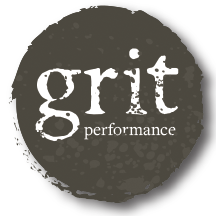Growing an Athlete
"How do I tell my baseball obsessed 12 year old that he's been cut from travel baseball and won't be on the team in the spring? We're sick."
This is one of the toughest issues to handle as a parent of an athlete. Preparing for losses is one thing - every competitive situation has the possibility for a win or a loss, a PR or sub par performance. But being left behind while peers continue on has the potential to devastate a young athlete and generate self defeating thoughts. There is no easy way around this subject - there is going to be pain, hurt, dejection and very possibly tears. Your athlete might talk about quitting, be slow to motivate to practice, become surly and start bashing their sport. These are all normal signs associated with feeling rejected, embarrassed and vulnerable. As a parent (or a coach) it's your job to balance immediate responses with big picture lessons. The big picture lesson is the life lesson; we work hard, we put our selves out there, and sometimes it isn't enough. What we do next with that information is the growth that comes from enduring the pain, creating a plan, and re-grouping. The balancing act as the adult is to help your athlete get to a place where they can move forward and buy in to the big picture. This can be a slow process based on the young athlete's history of successes and struggles in all aspects of life, not just their sport. What experiences do they have in school, with friends, with siblings that might get in their way of shifting this painful experience into a growth experience? Parents hold this information that coaches might not be privy to, and are therefore crucial parts of the process.
The most important part of dealing with the pain and disappointment your athlete is experiencing is listening and validation. It seems so easy, but is incredibly challenging when someone we love is in pain. We are conditioned to solve the problem and releive the suffering - and that's the last thing our child needs. They need an adult to validate their hurt, their humiliation, their bruised ego. Most of us can remember some moment when we had to sit with these uncomfortable emotions; it's your job to tap into that and reflect it back to your child. It might sound something like "I'm so sorry this hurts", "I can hear how awful this is for you", "It doesn't seem fair does it?", "You were so excited for next season", "I'm wondering if you are worried what your teammates are going to say". Nowhere did these statements encourage cheerleading tactics - move on, pick yourself up, you'll do better next time. It's not the time for that yet, your athlete needs to vent and to be heard before they can move into the next phase of healing. Our need to rush thru this painful phase is often a result of our own fears for our chlidren - the fear that this setback will crush them or the fear that as their parent we won't be able to handle their pain. The more validated and heard an athlete feels, the quicker they will be able to process the next step - the big picture lesson.
The big picture lesson is the real reason we want our kids playing sports. It's not the possible scholarships or the glory, it's the ability to endure pain and hardship - and to welcome this challenge. When your athlete is able to move on you will notice their defensiveness will have lessened; this is your opportunity to plant the seeds of growth. This is the time to encourage re-grouping and action. What were the deficits that led to them not making a team? Help them seek out this information by directly talking to their coaches and really examining their skills. What will it take to get to where they want to be next season? More practice? Staying late and getting up early? Accepting feedback even when it stings? These are the strategies that all successful athletes come to after natural talent starts to wane. These are the opportunities for growth that carry our athletes beyond athleticism and into life. Welcome to the big leagues.
